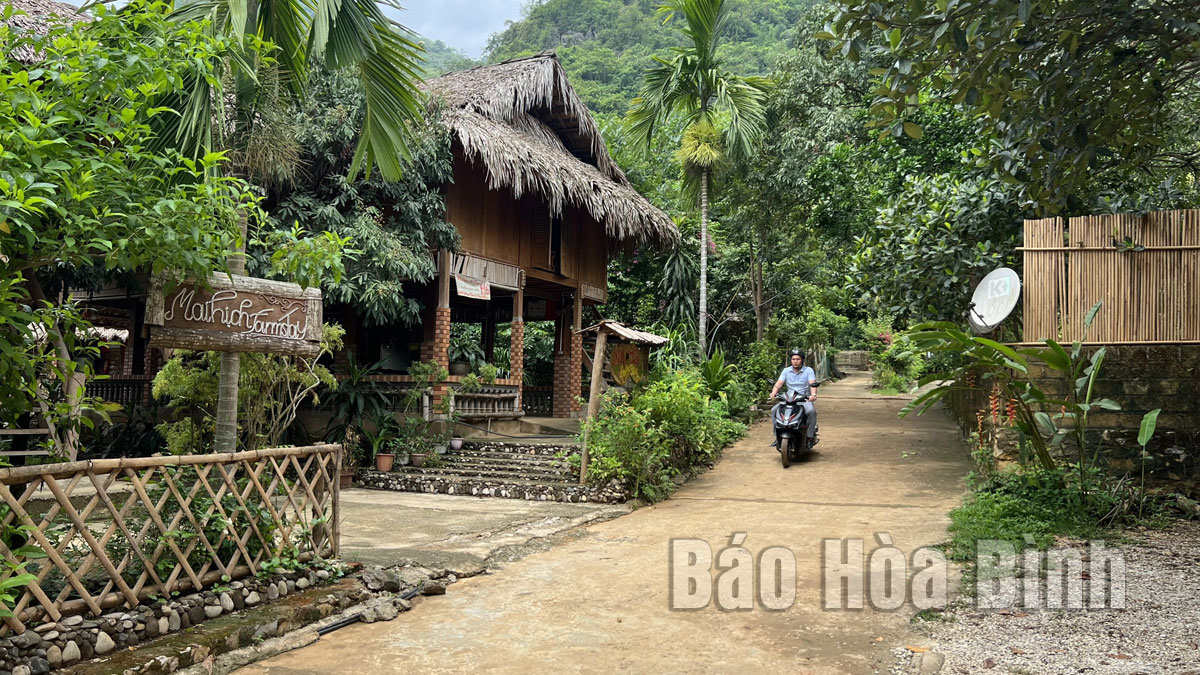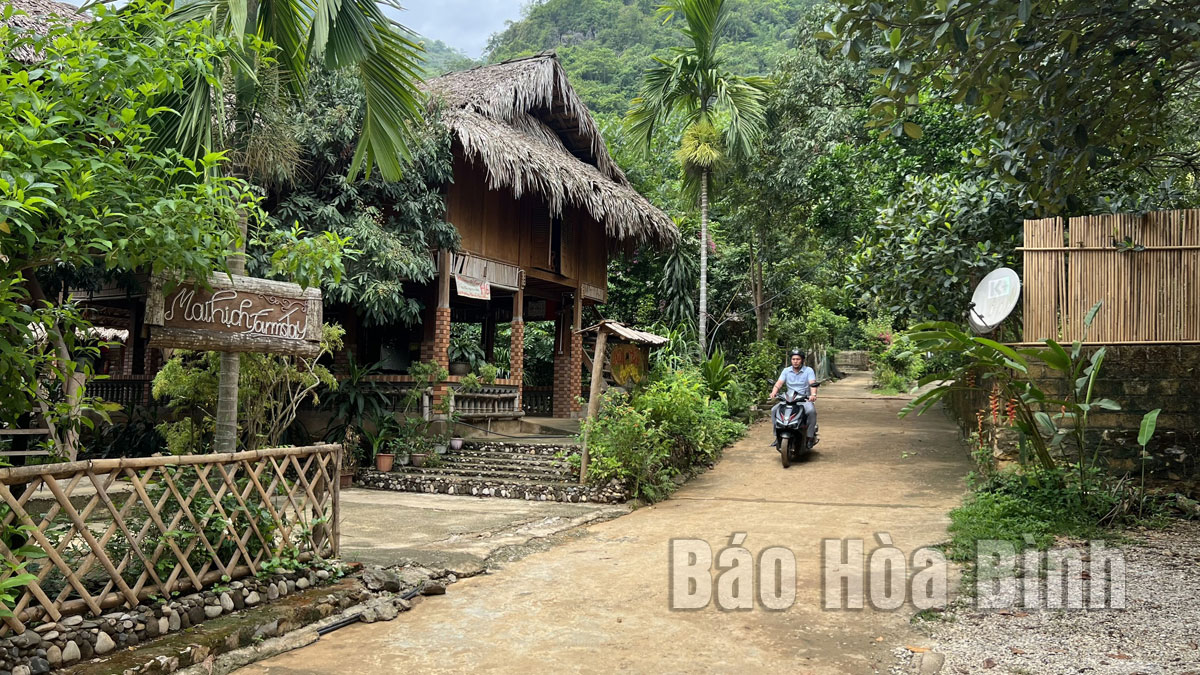
(HBO) - Mai Hich commune in Mai Chau district, formerly known as Muong Hich, surrounded by dense forests, used to be an extremely difficult region with bumpy and rocky roads. Under the leadership and direction of the local Party Committee and authorities, and the consensus of its people, Muong Hich has got a facelift. Now, it has concrete roads running along its hamlets, spacious cultural houses, and electricity and internet connected to each household.
Clean and broad road in Hich 2 hamlet, Mai Hich commune.
Ha Van Bong, Chairman of the Mai Hich commune People's Committee, said that the local Party Committee and authorities focus on leading and directing people to promote the production development, restructure of crops, diversify industries, and uphold the exemplary and pioneering spirit of officials and Party members. The commune has actively implemented projects and national target programme on building new-style rural areas, and encouraged locals to contribute their efforts and resources and to promote democracy and consensus in implementing new-style rural area building criteria.
Embarking on the building of new-style rural areas in 2011, the commune faced many difficulties and challenges, as at that time, its per capita income was only 8.3 million VND (343.2 USD) per year, and the poverty rate was 18.3%. In January 2020, Mai Hich was recognised as meeting new-style rural building criteria, and Hich 1 hamlet as a model residential area. Currently, the commune's per capita income reached 40.8 million VND a year.
Determining that raising income is an important factor and a premise to realise socio-economic development goals, the commune has paid attention to promoting economic development and diversifying industries and tourism services. Along with the development in agriculture, the handicraft and small-scale industries and services such as production of building materials, garments, and transportation services have developed stably, creating jobs for workers. The commune has 11 households involved in community-based tourism services, mainly in Hich 1, Hich 2 and Cha Lang hamlets, and two high-class resorts, namely Mai Chau Valley Retreat in Hai Son hamlet and Mai Son De Mai Hich in Hich 2 hamlet.
Bong said that from the results, in the coming time, the commune will continue to encourage locals to boost production, invest in infrastructure, make the most of the resources in order to improve new-style rural area criteria towards sustainability, and focus on consolidating and building a strong political system, ensuring security, social order and safety in the locality.
The emulation movement "Hoa Binh joining hands to build new-style rural areas” has been widely spreading, becoming a driving force that motivates the localities to renew rural landscapes and improve the material and spiritual lives of the residents. In this movement, the people play a central role-both as the main implementers and direct beneficiaries of its outcomes.
In response to the global digital revolution, Hoa Binh Newspaper is transforming itself into a modern and multi-platform media hub, blending cutting-edge technology with a restructured newsroom and a new generation of tech-savvy journalists.
Hoa Binh province’s Association of the Elderly recently held a conference to review the project on expanding the inter-generation self-help club model until 2025.
In a move to implement Resolution No. 57-NQ/TW, issued on December 22, 2024 by the Politburo, which targets breakthroughs in science-technology development, innovation, and digital transformation, the Hoa Binh provincial Department of Health has issued a plan to roll out the "Digital Literacy for All” campaign within the local health sector.
An Nghia Commune (Lạc Sơn District) is one of the communes that achieved the tha standard of the national new rural area in 2018. Entering a new development phase, the commune is now trying to meet the criteria for the advanced new rural development. With the strong political will and the public consensus, the commune is gradually overcoming the challenges to reach this goal, aiming for the sustainable development.



